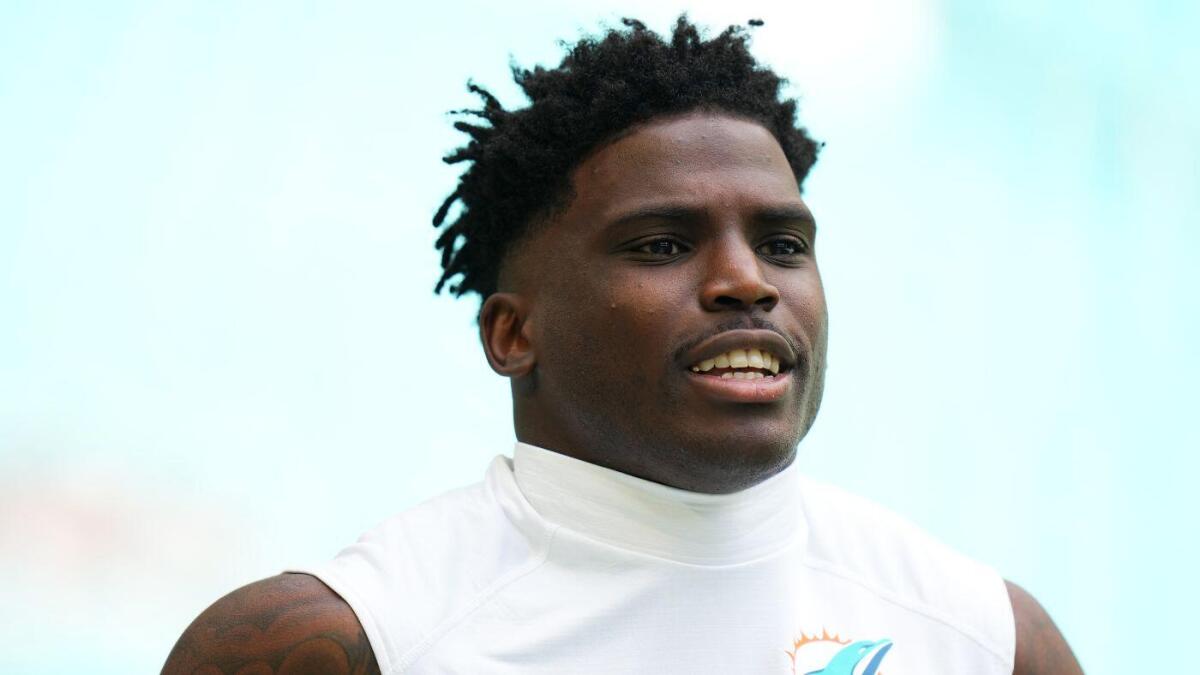Noah Lyles vs. Tyreek Hill: A Closer Look at the 2025 Sprint Showdown
The Intersection of Worlds: Track Meets Football
The highly anticipated 2025 sprint race between Olympic gold medalist Noah Lyles and NFL star Tyreek Hill presents a fascinating blend of athletic domains. On one side stands Lyles, a dominant figure in elite track and field, known for his explosive 100-meter sprints and Olympic triumphs. On the other is Hill, affectionately dubbed “Cheetah,” whose reputation as the NFL’s fastest wide receiver brings a different flavor of speed—one honed in the complex, dynamic environment of professional football.
This race transcends a mere competition between two fast runners; it epitomizes a cultural crossover with wide-ranging implications for both sports and their audiences.
Understanding the Competitors: Speed Defined Differently
Noah Lyles’ claim to fame rests on his 9.79-second finish at the 2024 Paris Olympics—a time entrenched in world-class sprinting history. His consistent sub-10-second performances underscore an elite training regime tailored specifically to maximize velocity over the full 100 meters.
Tyreek Hill’s official 10.19-second time over 100 meters is impressive, particularly considering his primary arena is football, where speed is part of a multifaceted athletic skill set. Unlike track sprinters who focus purely on running mechanics and raw speed, Hill’s training involves agility, strength, and endurance in rapid bursts over shorter distances—skills optimized for the varying demands of NFL gameplay.
The distinction between these modes of speed is at the heart of their rivalry, with questions arising about whether raw track speed or explosive acceleration over short yards is the true measure of athletic quickness.
The Build-Up: Trash Talk and Tactical Preparations
The pre-race banter and public challenges have amplified interest and underscored the competitive edge between Lyles and Hill. Hill’s provocations, including taunts about Lyles’ close finish against a YouTuber and his re-engagement with serious sprint training after years, add color and tension. Lyles’ responses lean on his Olympic credentials and specialized training, predicting a “blowout” on the classic 100-meter course.
Hill’s suggestion to shorten the race to 40-50 yards aligns with his NFL sprint bursts and explosive starts—his forte—making the event itself a strategic negotiation reflecting their respective strengths. The dialogue around race distance and format reflects deeper questions about what constitutes “fastest” in a world of diverse athletic disciplines.
Negotiating the Race: Terms and Stakes
The eventual compromise to race at a distance between 40 yards and 100 meters embodies the symbolic and practical challenges of this event. Hill’s preference for a shorter sprint mirrors the practical sprinting distances seen on football fields, while Lyles’ insistence on the full 100 meters points to tradition and the universality of that measure in track competition.
Financial considerations have also come into play, with Lyles emphasizing the seriousness and high stakes demanded by the event’s commercial potential. His call for “millions of dollars” with no gimmicks reflects a desire to preserve the race’s legitimacy, while Hill’s eagerness to see the event happen soon highlights the desire to prove his speed outside football’s confines.
The Public’s Fascination and Athlete Preparations
Fans from both camps watch keenly, aware that this isn’t just a race but a historic moment blending two athletic cultures. Hill’s recent dedication to honing track sprint techniques, including block starts and short indoor races like the 60m, signals his commitment beyond a simple stunt. Meanwhile, Lyles views the race as a way to maintain sprinting’s spotlight in off-Olympic years, emphasizing athletic excellence.
The cultural significance lies in more than just who crosses first—it’s about celebrating peak human speed in distinct yet intersecting forms, captured vividly by two of the world’s fastest men preparing to test their limits.
Beyond Speed: The Larger Implications
This competition is poised to generate unprecedented media attention and blend fan bases, driving new interest and sponsorship opportunities for both track and football. For track and field, it could rejuvenate public enthusiasm outside the Olympic spotlight. For the NFL, it serves as a showcase of elite athleticism in a novel, engaging format.
Moreover, the event may also redefine how speed is understood and valued across sports, potentially inspiring future cross-disciplinary showdowns and encouraging athletes to broaden their training horizons.
Final Thoughts: A Defining Moment in Sport
The Noah Lyles vs. Tyreek Hill race is much more than a simple sprint—it is a narrative rich with rivalry, respect, and the pursuit of athletic greatness across sports boundaries. The drama built from their contrasting speeds, public challenges, and mutual determination sets the stage for a competition that promises lasting impact.
As 2025 approaches, anticipation grows not only around the result but around the symbolic breaking of barriers between disciplines, celebrating human potential and the evolving nature of speed itself. This race will resonate as a testament to both athletic mastery and the power of sport to unite divergent worlds in thrilling competition.

